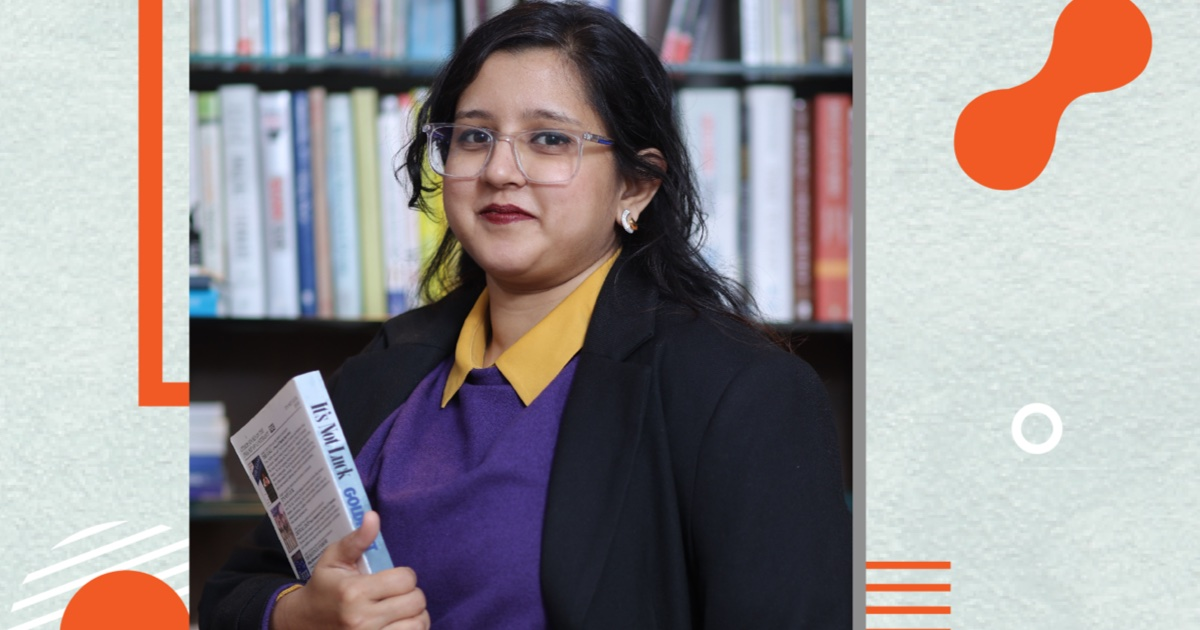
Dr Ritika Dusad is leading Marketing and Innovation at Nucleus, focusing on data-based decision-making and ideation. She completed her undergraduate studies at the University of California, Los Angeles and pursued a PhD in Physics at Ivy League- Cornell University, USA. During her PhD, she worked on both theoretical and experimental aspects of magnetism and designed and built a novel cryogenic spectrometer to detect magnetic monopoles. This is her AI journey.
Can you tell us about your AI journey?
My journey into Artificial Intelligence has been a fascinating exploration of innovation and problem-solving. From my early days at the University of California, Los Angeles, where I first glimpsed the potential of data-driven technologies, to my doctoral research at Cornell University, where I delved into the complexities of magnetism, I’ve always been driven by a curiosity to understand and apply cutting-edge advancements.
Transitioning from academia to industry, I was drawn to the intersection of technology and finance. At Nucleus Software, I’ve had the privilege of diving deep into the dynamic needs of financial institutions and their customers. Recognizing the transformative potential of Artificial Intelligence, I’ve been at the forefront of integrating AI into our solutions, leveraging its power to address critical challenges facing the industry.
One notable example is how we’ve harnessed AI to help corporate treasurers detect and prevent fraudulent transactions, reducing financial losses and reputational risks for banks and corporate companies. It’s been incredibly rewarding to see how innovation can make a tangible impact on the financial ecosystem, driving efficiency, security, and trust.
What is your area of expertise in AI, and what made you choose it?
My expertise lies in using AI to tackle security challenges within the financial services sector. The banking world is increasingly vulnerable to cyber threats, and I wanted to be at the forefront of fortifying its defences. Seeing the transformative power of AI in action has been awe-inspiring. It’s not just about protecting assets; it’s about empowering institutions to thrive in a digital world.
How did generative AI impact your field of work?
Generative AI has been a game-changer in the financial technology sector. Imagine streamlining complex processes with just a few lines of code or creating hyper-personalized content with unparalleled ease. It’s like having a creative genius at your fingertips. By integrating generative AI into financial solutions, we’re not just making operations more efficient but unlocking a world of possibilities for customers and staff alike. However, while exploring Generative AI, in-depth domain expertise sets us apart to enable responsible and unbiased use of artificial intelligence.
Describe some challenges you have faced in reaching where you are now.
Navigating the complexities of the financial services and technology domain has been a journey filled with challenges and accomplishments. One of the primary hurdles I’ve faced is striking the delicate balance between driving innovation and ensuring the fundamental pillars of compliance, security, and scalability remain intact.
For example, managing a vast amount of retail assets, such as INR 40 lakh crores in India alone, poses a significant ongoing responsibility. It necessitates constant innovation to uphold the security and integrity of these assets, safeguarding them against potential risks and threats.
Moreover, the ever-evolving landscape of AI in financial services presents its challenges. Staying abreast of the latest advancements while navigating regulatory frameworks and industry standards requires high expertise and adaptability. It’s a dynamic environment where staying ahead of the curve is paramount to delivering exceptional results.
Do you see enough female leadership roles in corporates? In your opinion, what should change?
There is undoubtedly a persistent imbalance in the distribution of leadership opportunities for women in the corporate world, particularly within the tech industry. Despite strides made to address gender disparities, significant challenges remain.
First and foremost, there needs to be a concerted effort to challenge and dismantle existing biases and stereotypes that hinder women’s advancement in leadership roles. This involves fostering a culture of inclusivity and actively promoting diversity at all levels of the organization. Leadership teams must reflect the diversity of their workforce, ensuring that women have a seat at the table and a voice in decision-making processes.
Additionally, organizations must prioritize implementing policies and initiatives that support women in balancing their professional and personal responsibilities. Flexible work arrangements, parental leave policies, and childcare support and mentorship programs enable women to thrive in their careers while managing family commitments.
Ultimately, creating lasting change requires a collective effort from both organizations and individuals. It’s about fostering a culture of empowerment, breaking down barriers, and championing gender equality in every aspect of the workplace. Only then can we create a future where women have equal opportunities to lead and succeed.
What do you want to say to women who wish to build careers in AI and other tech-related fields?
To aspiring women in AI and tech-related fields, your passion and talent are invaluable assets to the tech industry. Embrace your strengths, pursue your ambitions, and never let barriers deter you from achieving your goals. Remember, diversity fuels innovation, and your unique perspective is essential in shaping the future of technology.
Seek mentors, allies, and supportive communities to help you navigate challenges. Embrace continuous learning and stay curious, as the tech landscape constantly evolves, and the opportunities are vast.
